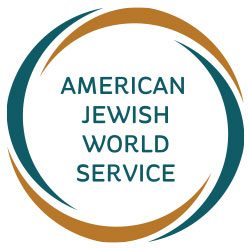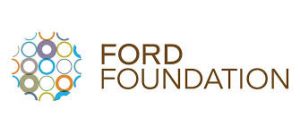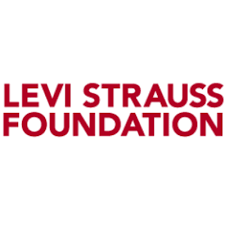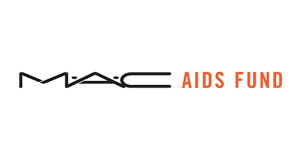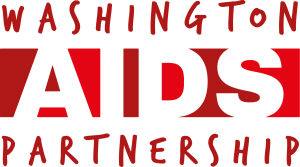Resources:
We have spent the past year taking an in-depth look at funding for community-based responses to the epidemic. One question we have asked ourselves as part of this process is: how are we defining “community?” Are we defining it as:
- Individuals within a specific geography or people living in the same country or village?
- Or a specific demographic, identity or common experience related to, for instance, age, gender, sexual identity, or HIV status?
The answer is all of the above. Communities are complex. Therefore, our approach to funding effective community-based responses must be as well. That is why we look forward to meeting with all of you in November. Together, we will identify new tools and opportunities to increase investment in the community-based approaches that are so critical to the fight against HIV/AIDS. At this year’s convening, we will:
- Engage in strategic conversations on what’s happening among impacted communities
- Build skills and discuss best practices to effectively support the hard to reach and excluded communities
- Share the results of our research on funding for community-based responses.
Registration is now closed.
Schedule
Session Designer: Open Society Foundations and American Jewish World Service, in partnership with the Global Philanthropy Project
Bilateral funding and policies have long been used as tools for donors to advance their ideological agendas in ways that undermine the autonomy of groups and locally-driven efforts to address human rights concerns. Using the Trump administration’s reinstatement and unprecedented expansion of the Global Gag Rule, as well as other donors’ counter policies to address it, this panel will illustrate the ways that donor conditionalities on funding are further disempowering local organizations and harming locally-driven advocacy, human rights, and the HIV response. Under the Global Gag Rule, organizations are forced to make the impossible choice between staying true to their mission to provide comprehensive sexual and reproductive healthcare, education, and advocacy – though in many cases at extremely reduced capacity – and accepting the U.S. funds which will allow them to continue to provide HIV and other health services, but will eliminate their ability to conduct any abortion related service delivery or advocacy. As a result, organizations may self-censor, choose sides, and sever partnerships, which leads to the further siloing of organizations and movements, and in many cases, completely stalls progress on local advocacy efforts to protect, respect, and fulfill the rights of all people. This session, designed by Open Society Foundations and American Jewish World Service in partnership with the Global Philanthropy Project, will contextualize the current threats to HIV, health, and human rights posed by the Global Gag Rule and related conservative religious actors. It will also explore ways that funders can support a shift in power toward grassroots human rights movements and community-led approaches to health and human rights to drive change in their countries. The session will also provide an opportunity for funders to strategize together about ways to support advocacy to mitigate the harms of ideologically-driven conditionality.
Speakers
This lunch will feature up to 12 hosted discussions relevant to topics at this year’s Summit. Each table host will lead participants in a focused conversation on their specific topic, with the goal to also answer how Funders Concerned About AIDS can play a role in facilitating future programming or collaborations on it. FCAA will be reaching out soon to survey you on your top lunch table discussion topics.
This session showcases milestone stories of community advocacy and why it works. Although communities have been put high on the agenda of donors, service delivery programs too often see them as recipients and not as vehicles for social change. Furthermore, there is a gap in funding community advocacy despite the increased mobilization of key populations globally. Lack of rights-based approaches by donors and governments aggravates this gap.
In the framework of PITCH program, Partnership to Inspire, Transform and Connect the HIV response, Aidsfonds and the International HIV/AIDS Alliance would like to share the success story of Mozambique, Uganda and Kenya by inviting the very vital actors of an efficient national HIV responses. This session will explore the importance of funding sustainable community advocacy strategies by sharing concrete examples of why it works and why it’s necessary. It will explain how funders and civil society organizations can develop the capacities of community-based organizations of key populations, as well as collaborate with and provide support to community-based groups in their advocacy with their governments. To illustrate the importance of community advocacy, we will highlight the collaboration between the national police of Mozambique with key populations in Mozambique. We will share the success of cross key populations partnership in Kenya and the engagement of sex workers in the response to HIV in Uganda.
Objectives:
- To increase awareness of the gap in funding for community advocacy.
- To share best practices in funding community advocacy and highlight why it works.
- To showcase the need for integrated national HIV responses, with multiple stakeholders and communities in the driving seat of the advocacy strategy.
Key questions:
- How can funders and other stakeholders best support the development of a sustainable and robust community response to HIV and Human Rights?
- Which are the ingredients of success for community advocacy and how KP activists made their claims heard by their governments?
- How can funders foster the development of rights-based responses to HIV and why test and treat programmes are insufficient in tackling the HIV epidemics?
Speakers
This workshop will provide an overview of recent Trump Administration and Congressional efforts to undermine the Affordable Care Act (ACA) and restrict access to Medicaid coverage. It will describe how these efforts (including proposed work requirements, drug screening and prescription drug access restrictions) threaten meaningful access to health care for people living with HIV and other low-income and vulnerable populations. The panelists will discuss community-based strategies for responding to initiatives that have the potential to undermine gains made in expanding access to health care coverage for people with HIV – particularly in Medicaid expansion states. They will also provide recommendations for proactive health reforms at the state level to mitigate harm and that could improve upon current HIV health care systems. Join us and learn how to participate in efforts to stop this Administration and Congress from threatening the health of people living with HIV!
Speakers
Communities are at the heart of the global HIV and AIDS response. Many of the key innovations, breakthroughs and progress on the ground would not have happened without the involvement of communities. Nearly forty years into the pandemic, community responses are still leading the way, helping to ensure that available resources are used most effectively and that the most affected groups are not left behind.In the first of our two-part plenary series, we will discuss three resources that funders can use when funding community-based organizations. FCAA will also publicly launch a new research paper that explores some of these best practices and challenges, as well as a as well as a data analysis which provides a new baseline to track HIV-related philanthropy for civil society organizations. Finally, we will be joined by a grantmaker and their community partner who have produced a report reflecting on how to improve support for community-driven change. This will be an interactive session, so come prepared to think about and answer questions such as “how do you define community?” and “how can private philanthropy support community action?”
Speakers
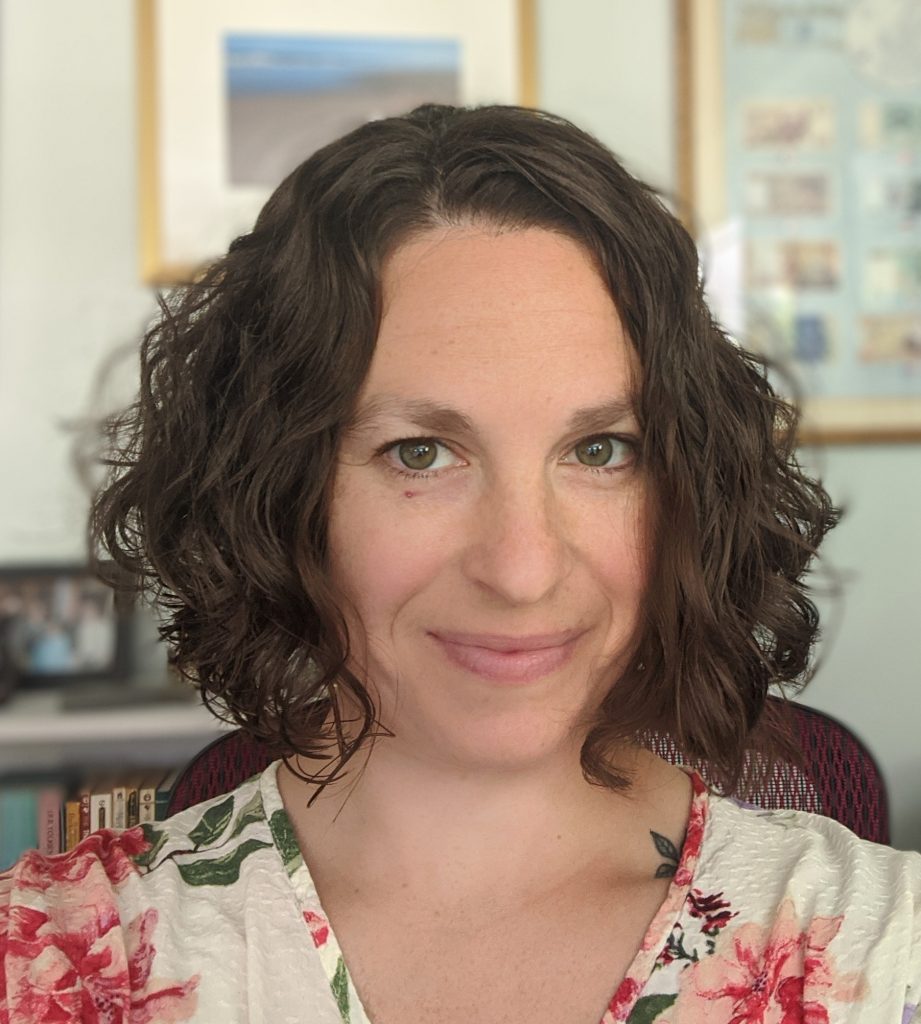
Caterina (Cat) Gironda (She/Her) is the Director of Research at Funders Concerned About AIDS (FCAA) where she manages their annual resource tracking project, mapping the landscape of philanthropic support to address HIV/AIDS. During Cat’s tenure with FCAA she has helped to grow their research department and modernize their data collection, security, and analysis capabilities. Her work has helped to integrate FCAA’s research into all programmatic facets and make their data useful and accessible to members and other stakeholders. Prior to that, Cat worked at North Carolina State University in the Gender & Sexuality field. Her previous work at nonprofits and philanthropy includes stretches at Girl Rising and the Third Wave Fund, as well as early work in HIV/STI prevention education. Cat received her master’s degree in Women’s, Gender, and Sexuality Studies from the CUNY Graduate Center in New York.
In the second half of our two-part plenary, we will dive into what it means to effectively fund community. What are the best practices leading the way – from participatory grantmaking, urgent action funds, and collaborative funding efforts – and how does it impact community-led action on the ground? We will also explore what we can do differently to become more effective in funding community.
Speakers

It has long been recognized that ending AIDS in children will require more than just a biomedical approach. Indeed, many of the challenges to achieving the 90-90-90 HIV target are inherently social and economic and grounded in community-led development processes. However, we are all still learning how to operationalize an integrated community-led approach effectively and at scale. This approach requires new ways for working for all of us; not least a greater emphasis on partnerships outside of the HIV sector, community-clinic collaboration, and systems strengthening. Private HIV donors have a vital role in this regard. They have the flexibility to pioneer integrated approaches that meet the holistic needs of children affected by HIV/AIDS from which others can learn. Several members of Funders Concerned About AIDS as well as several innovative implementors have tried and tested what works, particularly around the integration of early childhood development and social protection into HIV programming. This session brings together a panel of thought-leaders with research, implementation, and donor expertise in this field to explore the intersections between HIV and broader child health and development and the bi-directional benefits and opportunities for more integrated programming at the community level for those affected by HIV, including key populations. It will identify what it takes to deliver a more holistic package of services and help donors analyze what they can do differently.
Speakers
While HIV/AIDS funders have often taken the lead in supporting transgender communities’ response to the epidemic, trans women of color remain relatively few and far between among our professional colleagues in the philanthropic sector. Why is that the case, even when trans women of color are disproportionally affected by HIV and AIDS? How is our grantmaking negatively impacted without their voices alongside ours as staff members at foundations? What can be done about it? Attendees at this highly-interactive session will examine and interrogate the real-life challenges that largely exclude trans women of color from employment and advancement in institutional philanthropy and build upon our shared wisdom to locate the strategies and resources needed to overcome these obstacles. Join us and other attendees to increase your own awareness of what a philanthropic sector that better includes and supports trans women of color as foundation staff could look like and come away with new ideas and tools to try out at your own workplace.
Speakers
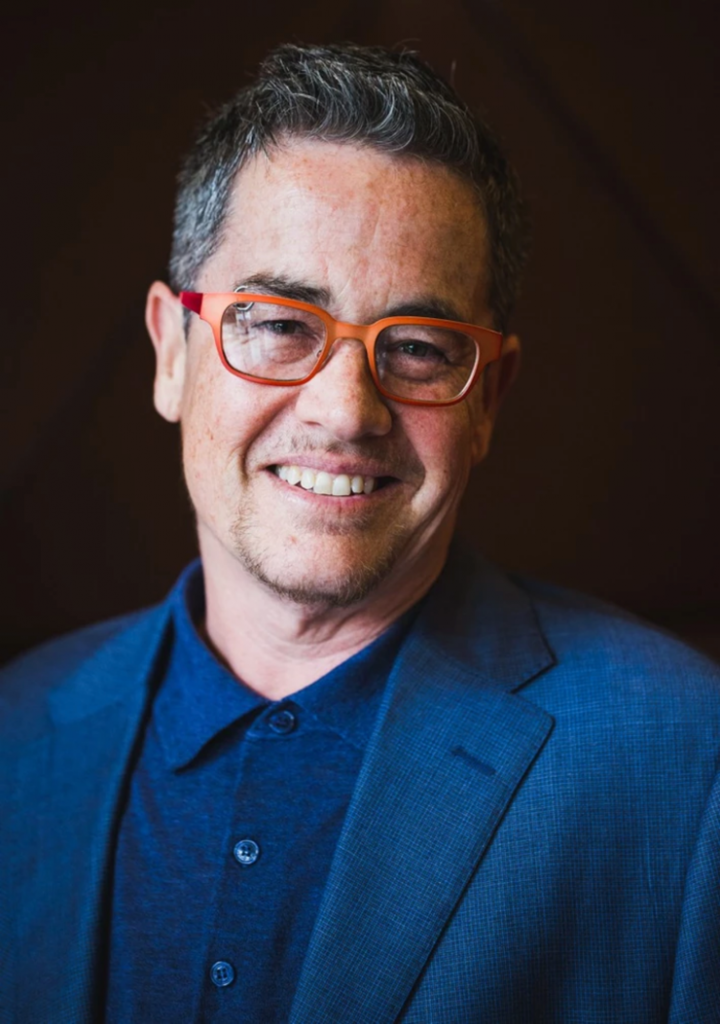
This afternoon, we will transition our conversations from a focus on advocacy and community, to one of sustainability. Specifically, what are the strategies that we must focus on to ensure impact over the long-term? To queue up this conversation, we have invited Greg Millett, Vice President and Director of Public Policy at amfAR, and Catherine Cook, Head of Research for Harm Reduction International, who will spotlight an issue in our crosshairs: funding for harm reduction. With recent increases in HIV among people who use drugs (PWUD) in the US due the opioid crisis and continued flat funding for harm reduction in low- and middle-income countries, understanding the gaps and opportunities in the philanthropic response to HIV among PWUD will be a critical issue for our sector.
Speakers

Gregorio (Greg) Millett is a Vice President at amfAR, the Foundation for AIDS Research, and the Director of amfAR’s Public Policy Office in Washington, DC. Mr. Millett is a former senior scientist with the Centers for Disease Control and Prevention, as well as a former Senior Policy Advisor in the White House Domestic Policy Council where he helped author and implement President Obama’s original National HIV/AIDS Strategy. Mr. Millett is a leader in health inequities research. He has published in top medical, public health and policy journals, including JAMA, Lancet, BMJ, Health Affairs, and AJPH, and has been a plenary speaker at multiple IAS and CROI conferences. In early 2020, Mr. Millett and his team provided the first national overview of COVID-19’s impact on Black and Latinx communities in the United States. These research findings were widely reported across print and televised media, and utilized in Congressional hearings that aimed to address COVID-19 health inequities.
The Children’s Investment Fund Foundation partnered with PEPFAR in an ambitious plan to double the number of children on ART in nine priority countries between 2014 and 2016. Similarly, the ELMA Foundation committed to increasing the number of children and adolescents identified, linked, and retained in treatment; and improving the quality of HIV care and treatment for children and adolescents. ELMA invested separately to accelerate testing and treatment in a number of countries in Africa. With such ambitious scale-up programs, both CIFF and ELMA commissioned Rabin Martin to evaluate whether their investments would lead to sustained change. This session will explore the results of the evaluations, what CIFF, Elma and their partners learned through the experience, and how and why private philanthropies should think about sustainability in the design of their programs.
Speakers
We have a heightened risk of losing ground in our progress with the emerging HIV, HCV and opioid syndemics. The CDC has indicated 220 counties are at increased risk for another “Scott County, Indiana,” as a result of opioid use. Our session will update HIV funders on the critical overlap of these syndemics, best practice for harm reduction services across the continuum of use and recovery, and how we should leverage resources across all “fights” to prevent further disease and death.
Speakers

Gregorio (Greg) Millett is a Vice President at amfAR, the Foundation for AIDS Research, and the Director of amfAR’s Public Policy Office in Washington, DC. Mr. Millett is a former senior scientist with the Centers for Disease Control and Prevention, as well as a former Senior Policy Advisor in the White House Domestic Policy Council where he helped author and implement President Obama’s original National HIV/AIDS Strategy. Mr. Millett is a leader in health inequities research. He has published in top medical, public health and policy journals, including JAMA, Lancet, BMJ, Health Affairs, and AJPH, and has been a plenary speaker at multiple IAS and CROI conferences. In early 2020, Mr. Millett and his team provided the first national overview of COVID-19’s impact on Black and Latinx communities in the United States. These research findings were widely reported across print and televised media, and utilized in Congressional hearings that aimed to address COVID-19 health inequities.
In 2017, in recognition of the importance of elevating racial justice in the HIV response, the Elton John AIDS Foundation and Ford Foundation jointly funded a meeting co-convened by Counter Narrative Project and Positive Women’s Network-USA. From that meeting, HIV Racial Justice Now!, a national coalition of people of color leaders has emerged to develop a framework and action plans to sustain and uplift this work. This session will engage participants around integrating a racial justice analysis and framework in the HIV movement. Recognizing the rich history and powerful legacy of leaders of color in the HIV movement, this session sees our current moment as building on the efforts of our foremothers and fathers. Although HIV has always been an epidemic that devastates Black, brown, and indigenous communities, the HIV response has not historically been grounded in a deep understanding of the ways the epidemic and response are shaped by white supremacy. This session will feature five HIV movement leaders from the Black, Latinx, and Asian/Pacific Islander community discussing the theory and praxis of racial justice in the HIV community. Through moderated discussion and storytelling, speakers will define and explain racial justice; describe, from a grantee perspective, what racial justice looks like in organizations, agencies, and funder practices; and propose priority strategies and innovations for the field to realign with a racial justice orientation.
By the end of this session participants will be able to:
- Discuss the importance of centering racial justice in HIV movement work.
- Describe ways that white supremacy is structured into organizations and institutions.
- Understand strategies to elevate people of color in HIV movement leadership.
- Envision strategies and practices that funders may be able to adopt to support racial justice within the HIV movement.
Speakers
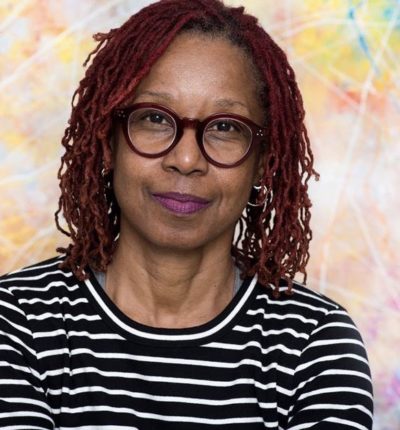
Venita is the Co-executive director of the Positive Women’s Network-USA, a national membership organization for women living with HIV. Venita served as the public policy manager for a federally qualified health center in Houston, TX, where she monitored HIV related health policy and managed an advocacy training program for people living with HIV. In 2016, Venita led a citywide effort to end the HIV epidemic in Houston and drafted the Roadmap to Ending the HIV Epidemic in Houston. Venita has led anti criminalization efforts in Texas defeating an effort to allow HIV test results to be subpoenaed in criminal prosecutions and defeated attempts to introduce new HIV criminalization legislation. Venita was diagnosed with HIV in 2003 and is deeply committed to equity, racial justice and developing the leadership and meaningful involvement of people living with HIV in all decisions that impact the HIV community.
Sponsors
We owe a special debt of gratitude to the following organizations and individuals who gave very generously of their time and resources to ensure the success of this meeting. Please also learn more about our fantastic Program Committee here. If you’re interested in becoming a sponsor of the FCAA Sponsor, please review this memo and contact Sarah Hamilton at [email protected].
